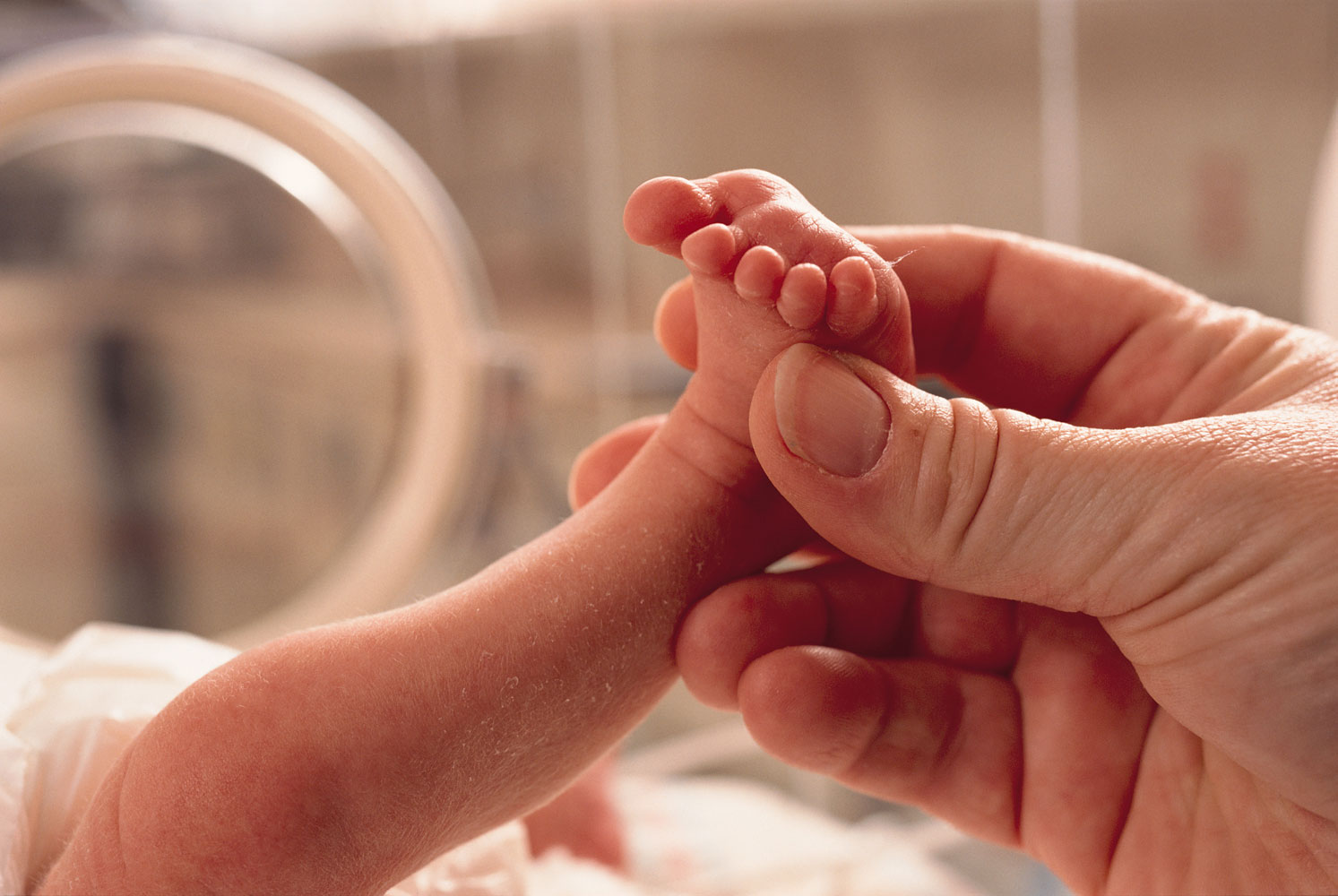
Two months before my son was due, I woke in the middle of the night with pangs in my stomach. Despite my overwhelming craving for carrots, these weren’t hunger pains. I figured they were simply the Braxton Hicks contractions I’d so often heard about. No biggie, I thought, and went back to what was more pressing: getting myself some carrots.
You can imagine my surprise when I moseyed into my midwife’s office the next morning, mentioned the pangs at the end of the appointment, and was promptly tested for preterm labor. I went about my day, met my husband for lunch, and the pangs grew stronger. I called the hospital to check in on my tests and was told that I needed to return—immediately. The results indicated I was at risk for going into early labor. Oddly enough, my initial feeling was one of excitement. This was soon quickly replaced by worry and mild panic, but I had a high level of trust in my midwife and the hospital I was planning to deliver at, and for a brief moment, the idea of meeting my baby that very day was an exciting one—before I reminded myself that we were way ahead of schedule.
The doctors and nurses attempted to stop or stall my labor, to no avail. There was no shred of excitement left in me. I was terrified and confused, asking each nurse I met what was happening to me. I was reassured at every turn: “We’re taking care of you” and “We’ll keep your baby safe.” I couldn’t fully comprehend what was happening, and when I found myself being wheeled into a delivery room and being set up for birthing, I still thought the labor would be stopped. It had to be! And then the doctor walked in and announced that I was dilated five centimeters.
Game on.
Until that day, I never knew that an experience could be simultaneously extraordinary and heart-wrenching—how one moment could shake your soul and rattle your insides and give you terrible dreams at night, while also inspiring you to gush with delirious happiness about how you’d done it: You had entered into that forever life-changing realm that is motherhood. Before I became one, parenthood seemed mysterious to me. But then, as they say, it all clicked the moment I met him.
As my body took over and my personal will was taken over by primitive reflexes, I realized I couldn’t stop or alter anything that was happening to me. My son was going to be born that day. His birth wasn’t going to happen the way we thought it would, but it was still happening. I had one chance to really cherish and remember my son’s birth—the moment I was also born as a parent—and this was it.
So I did.
I grabbed my husband’s hand and pushed. I pushed, again and again. I yelled, I fought, and shortly thereafter I gave birth to the most incredible little person I had ever seen in my life. But there was no moment of first touch—my hand grazed his chest as they placed him on the NICU table and whisked him away—no cooing or gasping in awe over this adorable little human that my husband and I, weary and battle-worn as we were, had made. There wasn’t a chance to try breastfeeding right away or to connect skin-to-skin. One second he was in my body, the next he was wheeled away to be assessed.
And that was it. I had spent the months leading up to our son’s birth daydreaming about holding a tiny wrinkly creature, happily whispering sweet nothings and singing Beatles songs in his ear, smiling and loving everything we had done. And I had looked forward to establishing a strong breastfeeding connection and having that quintessential bonding moment.
Instead, the only thing I had to cling to was the area of my hand that had touched his body for that brief moment. I didn’t even know if the spot of blood left there in passing was mine or his. A month of back-and-forth NICU visits followed. I pumped religiously, setting alarms for exactly the times my son’s nurses said he needed to be fed. I would wake up each day at 6:00AM, pack my bags of “liquid gold” in a tiny cooler, and set off on my bus ride.
I could have spent his time in the NICU crying (and I sometimes did), or mourning the loss of the birth experience I wanted for us, but I didn’t. Instead, I felt a renewed sense of my motherhood as fate was redefining it for me on a daily basis—there was no “right” way to be a mother, just my way. The in-between was a land of ideals.
*Excerpted from The Good Mother Myth: Redefining Motherhood to Fit Reality, edited by Avital Norman Nathman. Available from Seal Press, a member of the Perseus Books Group. Copyright 2014.
More Must-Reads from TIME
- Donald Trump Is TIME's 2024 Person of the Year
- Why We Chose Trump as Person of the Year
- Is Intermittent Fasting Good or Bad for You?
- The 100 Must-Read Books of 2024
- The 20 Best Christmas TV Episodes
- Column: If Optimism Feels Ridiculous Now, Try Hope
- The Future of Climate Action Is Trade Policy
- Merle Bombardieri Is Helping People Make the Baby Decision
Contact us at letters@time.com